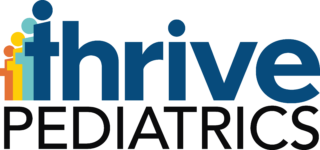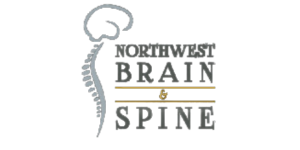
Medman_Molly Ramsay Part 2: Audio automatically transcribed by Sonix
Medman_Molly Ramsay Part 2: this mp3 audio file was automatically transcribed by Sonix with the best speech-to-text algorithms. This transcript may contain errors.
Jay Holmes:
Welcome to the Medical Management Podcast, a podcast focused on helping you level up your practice. Through interviews with some of the most successful leaders in the industry, we help uncover resources, tools, and ideas to help you level up your practice. Thanks for tuning in, and we hope you enjoy today's program.
Jesse Arnoldson:
Hello and welcome to the Medical Management Podcast. I'm your host, Jesse Arnoldson, I'm returning this week with my partner, Molly Ramsay of MedMan. Welcome back, Molly!
Molly Ramsay:
Happy to be back!
Jesse Arnoldson:
I'm excited to kind of talk about this because, this next topic because I think it requires us to kind of pull out our fortune-telling ball and do our best at guessing what's coming down the pipe. But you know, for our listeners, over the last couple of years, we've been through a real roller coaster, you know, a point where we wondered if we were going to be able to keep our employees employed, a couple of lulls in the middle like, Oh, maybe we made it, a whole lot of turnover unless you're, you know, got some sort of magic recipe for keeping all of your employees there, but we all went through a sort of staffing crisis, and I think recently, maybe we're not out of the woods, but we felt like we're in another lull. I'm wondering, Molly, if you're hearing anything or thinking of anything about what might be coming next in this whole staffing saga that we're going through.
Molly Ramsay:
Yeah, I think we are, you know, certainly we are hearing the continued rumbles in terms of healthcare workers being burnt out, you know, and just and people in many industries that are feeling burnt out, and you know, in healthcare in particular, we were on the brink of kind of having staff burnout before the pandemic happened. And then, now we are kind of thrust into this more two years in. And of course, with the variants and whatnot, people are feeling a little bit fatigued because they kind of had put their nose down when this all started and felt like they could just kind of muster up the energy and push through, but then now we're kind of getting derailed a little bit because we have the onset of all these different variants. And so people are losing a little bit of the hope of like, yeah, I had enough energy to push through. But now it just feels like the constant state of, you know, efforts and we don't know where the finish line is. So we're certainly still hearing those rumblings and we're still seeing quite a few people kind of jumping ship and moving around quite a bit, and the biggest carrot for those individuals to make the move is compensation. Being, you know, a big area that's being highlighted at the moment. And so a lot of organizations, a lot of clinics and hospitals and healthcare settings, and I think this is happening across the board in other industries as well, as that people, employers are having to revisit their pay scales and see, you know, what is it that we are currently at and are we competitive? And what is it going to take to be competitive? And quite honestly, what that's doing for us is that we don't have a lot of great data as an employer, like all of those salary surveys that we want to use to dictate, you know, their ranges for our positions, those are kind of irrelevant at the moment, because everyone is just kind of throwing noodles at the wall and hoping to see what sticks in terms of compensation to be able to keep people. And so we're kind of flying blind in terms of not having the data to make informed decisions, which is kind of an interesting dynamic to be in and kind of writing some new rules on, on call. So that's been something that I've been hearing about and just organizations trying to navigate. I'm hearing some people doing cost of living increases of anywhere from five percent, which used to be considered somewhat generous.
Jesse Arnoldson:
Oh, yeah!
Molly Ramsay:
For a cola to now ranges or anywhere from that five percent on being on the very low end to 30 percent.
Jesse Arnoldson:
Oh my Gosh.
Molly Ramsay:
Adjustment in terms of compensation, that is huge, and particularly in the space that we work in, which is independent medical practices, that's a big hit to an organization's budget and how do you plan for that?
Jesse Arnoldson:
Yeah, absolutely. It was interesting because I was in one of our clinics and they had established a retention bonus program and the bonus pay, the first bonus, we were setting it up as a quarterly thing went out, and two days later we had two people resigned. And so it just, it was really hard to stomach that because we were trying our best to keep these people and combat the financial competition coming our way from outside sources and it felt like a punch to the gut that we still weren't, one, we're not out of the woods and two, questioning whether these giant financial levers that we were pulling were, are they working or not? And I, I still have faith that they are for the majority of people. And you know, you can't knee jerk based on one or two employees, not, you know, sticking with it, but it sure as heck makes you question, get a little insecure, right?
Molly Ramsay:
Yeah, yeah. And that's the hard thing, too, is because we're all faced right now with this staffing kind of crisis and just being short-staffed and not being able to hire for these common positions, you know, just having a really hard time dealing with positions. And so, taking the long view, my hope is, you know, you talked about looking in the crystal ball and being able to kind of look to the future as taking the long view, what can we be doing as an organization to create an environment that people are going to be attracted to? Beyond the monetary piece of it, so we're going to have to make some adjustments to compensation, absolutely, that's just going to be the new world that we're in, but what other things can we be doing to be an employer of choice for an organization because I, my heart tells me, you know, this is me looking through rose colored glasses.
Jesse Arnoldson:
Yeah.
Molly Ramsay:
Is that, you know, those employees that, you know, ae those organizations, they're offering pretty lucrative pay? My hope is that, that the grass isn't always greener. The compensation was a good, good incentive, but there are other things that are going to be important to employees, and my hope is that we'll be able to offer some of those other kind of softer, softer reasons, you know, or motivations that people will be attracted to.
Jesse Arnoldson:
My heart hopes for the same thing, Molly, it really does. We think alike on that part. I've wondered if maybe like I said, I felt a little bit of a lull recently. Like it hasn't been as hard. You know, the majority of our people have stayed put for the last little bit, and I don't hear a lot of rumblings yet, but I've wondered if maybe there's some seasonality to that that might be giving us a little bit of false sense of security, like people aren't going to quit their job two weeks before Christmas. With that being said, Molly, and maybe I'm, and here's the cynical side of me, I just said that maybe my heart's a lot more hopeful, but maybe I'm getting a little more cynical, if that's the case, what should we be doing right now to maybe shore up a stronger January-February?
Molly Ramsay:
Yeah. You know, I don't want to be a cynic either, but I think a little bit of the lull is certainly attributed to the seasons. You know, people don't want to jump ship right around the holidays, the stability is pretty important to people, especially coming out of, or through the times that we've been in in the last two years, so I think we need to be prepared for some adjustments and people kind of that whole new year and doing some introspection, you know, what do I want for myself? Those conversations are going to be had over the next couple of weeks. And I think as organizations, naturally, you kind of have this whole year-end process of reflecting on the year and wanting to acknowledge your staff, of how hard they've worked, and you know, we do these parties and the year-end bonuses and other common activities like that to acknowledge and appreciate our staff, take that through to January and February. And I'm not meaning talking about we need to throw parties and do additional bonuses in January and February necessarily, but have a game plan for how are you going to appreciate, demonstrate your appreciation for your employees in January, February, March. I think we tend to let off the gas a little bit on those types of activities in the first quarter of the new year because we kind of are a little bit tired because we've done a lot of that in the fourth quarter.
Jesse Arnoldson:
Yeah.
Molly Ramsay:
So what can we be doing to ensure that we're starting off 2022 and the new year having that top of mind in terms of how are we acknowledging our employees, demonstrating our appreciation and helping them not feel burnt out.
Jesse Arnoldson:
Right.
Molly Ramsay:
And having reasons to be looking elsewhere.
Jesse Arnoldson:
Absolutely. That makes sense. Is there anything else that we, you know, I talked with one group the other night that wanted ideas for contingency planning, staff contingency planning, have you seen any creative ideas that clinics are using to OK, I don't know who's going to quit, but I'm banking on somebody quitting, you know, what am I going to do now to make sure that we can survive the two to five weeks it takes to replace that person?
Molly Ramsay:
Yeah. So I think organizations are a couple of things. One is the whole idea of PRN employees or, you know, PRN employees that you see in the hospitals was really common. I think that idea is going to be and is transferring into the clinic, setting, and into smaller organizations of how can we have this kind of flex employee who can be available kind of not at a, at a moment's notice but we can call up. And so trying to create a pool of flex employees is going to be more common, I think, for smaller organizations, not just the hospital or larger settings.
Jesse Arnoldson:
Right.
Molly Ramsay:
And more, just part time employees as well, kind of this idea of job sharing for physicians. So that is, I think that what we, part of the whole kind of great resignation was is that employees were finding that they that got a taste of being at home and remote work, and really liked it.
Jesse Arnoldson:
Right!
Molly Ramsay:
So they are trying to figure out like, how can I do that in the long run? And so can, do you have positions that could be more of a job share so that some people can have more time at home, that they were really came to enjoy during the pandemic and less time at work. The other thing is is that I think we just have to put more emphasis on we're hiring for attitude and less on experience and that we have to really put a lot of time and attention and investment into creating the best possible training and support for these individuals. And that's really hard to do when you're short staffed anyway, but I think we have to be a little bit less selective in our hiring for experience and put the emphasis on the right attitude and a values fit and that we can, knowing that we can train for experience.
Jesse Arnoldson:
Awesome. Well, I'm hoping that our positive, heartful side wins out over our cynical predictions, but you know it's best to, to prepare. You know, what do they say? Preparation is better than prediction, so doing those right things to shore up your employees and make sure that they feel appreciated, having some contingency plans and just, you know, probably just being mentally prepared for that. Again, you know it just building up our resiliency tank for what may be coming in the next three to six months or so, but Molly, thank you again for being on here. I love your insight and I hope our listeners feel supported by that message. But thank you, Molly!
Molly Ramsay:
Yeah, thanks for having me again, Jesse, appreciate it.
Jesse Arnoldson:
All right. And for all of our listeners, thank you for tuning in. Tune in next week for another episode and for anything else the MedMan does, please visit us at MedMan.com.
Jay Holmes:
Thanks for tuning in to the Medical Management Podcast. We hope you enjoyed today's featured guest. For the show notes, transcripts, resources, and everything else MedMan does to help you level up, be sure to visit us at MedMan.com.
Sonix is the world’s most advanced automated transcription, translation, and subtitling platform. Fast, accurate, and affordable.
Automatically convert your mp3 files to text (txt file), Microsoft Word (docx file), and SubRip Subtitle (srt file) in minutes.
Sonix has many features that you'd love including secure transcription and file storage, enterprise-grade admin tools, automated transcription, collaboration tools, and easily transcribe your Zoom meetings. Try Sonix for free today.
Episode Summary
Welcome back to this two-part special with Molly Ramsay!
Staffing and employee retention have been nothing less than a greek conquest for the last couple of years. Even before the pandemic hit, healthcare workers were feeling burnt out. Since early 2020, when Covid wreaked havoc worldwide, a lot of people have been jumping ship due to being in a constant state of burnout. Compensation is one big flag to touch upon in this discussion, but it isn’t the only one. Many organizations are looking forward to new and softer ways to retain their employees.
Molly and Jesse go through this topic sharing reflections, pieces of advice, and possible solutions to have a stronger January-February period. Tune in and enjoy!
About our guest – Molly Ramsay
Molly Ramsay is the Corporate Operations Director at MedMan. She has a Bachelor of Science in Healthcare Administration from Idaho State University. She also worked as the education and talent director and as director of human resources at MedMan.
Key Take-Aways
-
- A lot of people are leaving their jobs because of their discontent regarding compensation.
-
- More data is needed to really understand the situation we are going through to make a decision.
-
- Have a game plan for how you are going to show appreciation to your employees throughout the year.
-
- Having a pool of flex employees or more part-time employees can help avoid burnout.
-
- Every industry is going through a major shift right now regarding hiring: they are looking for attitude and not experience.
Resources
-
- Connect with Molly on LinkedIn here
-
- Follow Molly on Twitter
-
- Connect and Follow Peter on LinkedIn here
-
- Discover more about Nutromics here
-
- Grab your copy of “The Obstacle is the Way” here
-
- Know more about MedMan here























